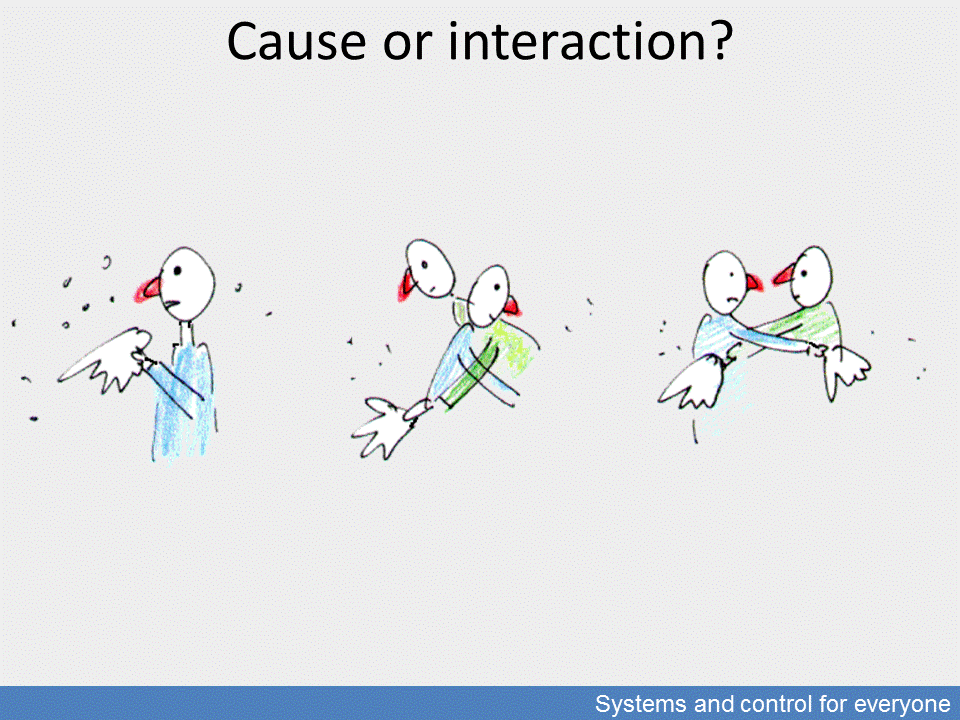

Cause or interaction?
This is an ancient philosophical question about changes. Cause is a basic concept in human thinking but it is precisely this fact that calls into question its interpretation as a basic motive force in nature. The examination of interactions between phenomena suggests an approach which is less dependent on presuppositions, but in fact the assumptions of interactions cannot be substantially independent from them either, only that the latter assumptions suggest a more critical approach.
Where the system is divided into suitable sections, for the purposes of the model the succession of phenomena is no longer an old philosophical problem in connection to the acceptance of causality. The original problem is whether the successive consequences observed result from the fact that things have an order that is defined somewhere, or that the cumulative effect has a property inherent in things that triggers the impact under specific conditions.
Here is a little example to illustrate the difference and its importance. According to the popular belief, the symptoms of a cold are caused by the fact that we caught cold. However, as it turned out, this disease is also mostly bacterial, though the circumstances of catching cold greatly contribute to its occurrence. Prejudiced deductions have derailed the handling of a variety of phenomenon in history, especially during the exploration of certain genocides and persecutions. The symptoms generated by the mixture of genetic and epigenetic factors and their accidental concurrence are also good examples of how phenomena and explanations get mixed up, and the interpretation of these examples is continuously changing as scientific research progresses.